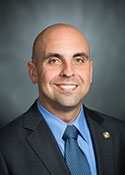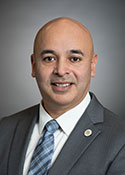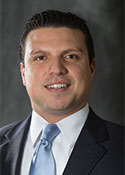POLYGON ((-97.942146 27.635932, -97.939536 27.679591, -97.938298 27.694163, -97.933603 27.776896, -97.933804 27.847633, -97.934274 27.885202, -97.902465 27.911284, -97.897997 27.914254, -97.888158 27.922256, -97.798517 27.995659, -97.798678 27.994445, -97.799864 27.993315, -97.800169 27.992584, -97.799918 27.991804, -97.798881 27.991289, -97.798617 27.989438, -97.801002 27.985799, -97.80191 27.982711, -97.80211 27.980654, -97.802638 27.979498, -97.805152 27.979429, -97.805901 27.979042, -97.806543 27.974137, -97.807113 27.973111, -97.808424 27.972162, -97.809528 27.972208, -97.810148 27.972705, -97.810655 27.974463, -97.811559 27.97488, -97.814057 27.973715, -97.816333 27.973275, -97.816811 27.971658, -97.817618 27.970478, -97.81728 27.969054, -97.816194 27.968501, -97.815349 27.967197, -97.813404 27.966076, -97.812212 27.964822, -97.812011 27.964069, -97.812777 27.962684, -97.812542 27.962191, -97.810947 27.961403, -97.810537 27.960492, -97.81069 27.959666, -97.809839 27.957764, -97.810209 27.955359, -97.809966 27.953165, -97.810198 27.951204, -97.808789 27.948343, -97.808666 27.945868, -97.809632 27.944516, -97.809405 27.944061, -97.808854 27.944017, -97.806598 27.945187, -97.805526 27.94442, -97.806242 27.942939, -97.805919 27.941481, -97.806137 27.941112, -97.80788 27.941339, -97.809121 27.941927, -97.809601 27.941406, -97.807265 27.939106, -97.807086 27.937018, -97.805619 27.936384, -97.805732 27.935848, -97.806412 27.935794, -97.806826 27.935318, -97.806484 27.934396, -97.805765 27.934287, -97.804049 27.935796, -97.803483 27.935478, -97.802847 27.934228, -97.802129 27.93383, -97.79992 27.935665, -97.798725 27.935903, -97.797694 27.934904, -97.797582 27.934031, -97.796733 27.934116, -97.796439 27.934496, -97.796965 27.935477, -97.796841 27.936925, -97.795411 27.937884, -97.796511 27.940087, -97.795529 27.942221, -97.793646 27.942888, -97.792877 27.943738, -97.790775 27.943695, -97.787635 27.944671, -97.785944 27.944805, -97.784098 27.945739, -97.782501 27.947253, -97.780678 27.947669, -97.77864 27.94752, -97.778246 27.947284, -97.778235 27.94687, -97.779732 27.945517, -97.779922 27.944632, -97.779606 27.944222, -97.778177 27.943674, -97.776819 27.942342, -97.777032 27.939872, -97.775878 27.937875, -97.772535 27.937816, -97.768908 27.935995, -97.767782 27.935726, -97.766286 27.936658, -97.766556 27.937774, -97.766246 27.938487, -97.765019 27.938554, -97.764303 27.938127, -97.763491 27.936214, -97.763169 27.934467, -97.762047 27.933754, -97.761968 27.932849, -97.763037 27.931195, -97.764512 27.930885, -97.765304 27.930172, -97.76665 27.928614, -97.766878 27.927716, -97.766434 27.926656, -97.765149 27.925947, -97.764624 27.926232, -97.764451 27.92676, -97.763552 27.927202, -97.762598 27.927266, -97.762002 27.926924, -97.761605 27.926304, -97.761716 27.925643, -97.762202 27.925031, -97.763147 27.924868, -97.76351 27.924471, -97.762951 27.92345, -97.761491 27.92323, -97.760931 27.922644, -97.759651 27.923391, -97.75791 27.923467, -97.757172 27.924774, -97.755317 27.92598, -97.754605 27.927103, -97.754833 27.927704, -97.756071 27.928638, -97.756067 27.929077, -97.753883 27.929402, -97.75185 27.930145, -97.749917 27.932292, -97.748994 27.932856, -97.74829 27.932664, -97.74765 27.931944, -97.745954 27.926952, -97.744018 27.92756, -97.738738 27.925592, -97.73629 27.925928, -97.733106 27.925336, -97.730018 27.923288, -97.729235 27.922152, -97.730417 27.919882, -97.731281 27.919369, -97.732559 27.919975, -97.733584 27.919754, -97.73365 27.919288, -97.732914 27.918392, -97.733042 27.918136, -97.735698 27.917128, -97.736722 27.91612, -97.737074 27.914857, -97.736018 27.911881, -97.734946 27.911737, -97.732914 27.912585, -97.734306 27.915049, -97.734258 27.915497, -97.733826 27.915784, -97.731266 27.916296, -97.730466 27.915961, -97.72973 27.914425, -97.727394 27.915913, -97.725202 27.916489, -97.723938 27.916297, -97.720258 27.914809, -97.717522 27.911785, -97.715858 27.911545, -97.715171 27.912521, -97.715025 27.913335, -97.715492 27.915513, -97.716741 27.917129, -97.716416 27.918057, -97.714724 27.91852, -97.711795 27.920936, -97.710546 27.921256, -97.70821 27.922584, -97.705874 27.922424, -97.702978 27.921112, -97.701266 27.918345, -97.699922 27.917353, -97.69901 27.917225, -97.698642 27.917497, -97.69941 27.919081, -97.699282 27.919641, -97.698738 27.920009, -97.69813 27.919785, -97.696434 27.918105, -97.693906 27.917817, -97.692866 27.916905, -97.692082 27.916857, -97.691682 27.917305, -97.691074 27.917353, -97.690514 27.916969, -97.689713 27.915561, -97.689073 27.913689, -97.687809 27.911977, -97.687441 27.910665, -97.688081 27.908105, -97.691025 27.905465, -97.691642 27.904758, -97.691691 27.904101, -97.691078 27.903748, -97.69 27.903819, -97.68959 27.903443, -97.686841 27.903316, -97.686506 27.902768, -97.68956 27.900885, -97.689775 27.900341, -97.686689 27.900904, -97.684945 27.899849, -97.683665 27.899673, -97.682737 27.900649, -97.682737 27.901752, -97.682177 27.901896, -97.680081 27.899433, -97.680833 27.898041, -97.678689 27.898313, -97.678033 27.897961, -97.677425 27.896809, -97.678129 27.895561, -97.678017 27.895193, -97.676785 27.895369, -97.674865 27.894761, -97.671793 27.893209, -97.671265 27.892665, -97.671505 27.891337, -97.674305 27.890105, -97.674257 27.889529, -97.673121 27.888905, -97.672993 27.887801, -97.673632 27.885834, -97.676048 27.884506, -97.675872 27.883386, -97.67528 27.882538, -97.673744 27.88161, -97.671328 27.880778, -97.668944 27.878603, -97.664736 27.876283, -97.656785 27.873003, -97.652433 27.872267, -97.645233 27.872747, -97.642417 27.871771, -97.640849 27.870731, -97.639505 27.868939, -97.639121 27.866971, -97.638174 27.865594, -97.635493 27.866772, -97.630769 27.870203, -97.628373 27.873299, -97.627057 27.875707, -97.626033 27.881403, -97.627761 27.887209, -97.631857 27.892313, -97.632113 27.893385, -97.631681 27.894426, -97.630449 27.895354, -97.626973 27.895398, -97.623937 27.893034, -97.621076 27.892196, -97.614397 27.892994, -97.611798 27.892595, -97.609593 27.890377, -97.60919 27.884398, -97.610388 27.875991, -97.608984 27.871688, -97.607787 27.870894, -97.607082 27.869891, -97.60228 27.868694, -97.598378 27.8663, -97.593773 27.858797, -97.591871 27.857005, -97.589473 27.856101, -97.585071 27.856443, -97.5828 27.857194, -97.578447 27.859966, -97.575279 27.860973, -97.573135 27.860989, -97.565728 27.85958, -97.557519 27.860235, -97.555087 27.860715, -97.548463 27.859339, -97.544318 27.858875, -97.542622 27.858315, -97.541008 27.856747, -97.54031 27.855186, -97.539571 27.8519, -97.538654 27.850381, -97.53715 27.848717, -97.53531 27.847677, -97.530191 27.848012, -97.525998 27.846813, -97.52147 27.847245, -97.51475 27.846733, -97.513374 27.846301, -97.510686 27.844173, -97.506878 27.843021, -97.505182 27.843549, -97.502491 27.846375, -97.500987 27.846697, -97.499663 27.845929, -97.493037 27.844203, -97.490175 27.839486, -97.489231 27.83883, -97.488175 27.839422, -97.488287 27.840526, -97.487119 27.841742, -97.487215 27.84307, -97.489167 27.845341, -97.489903 27.845693, -97.490319 27.846525, -97.491743 27.846989, -97.492303 27.847757, -97.495327 27.849869, -97.498223 27.850973, -97.502639 27.852045, -97.507103 27.852381, -97.509311 27.853229, -97.509551 27.853085, -97.509135 27.852189, -97.509631 27.851997, -97.512639 27.851581, -97.515119 27.851949, -97.515055 27.852301, -97.514303 27.852365, -97.514255 27.856205, -97.516015 27.856877, -97.516191 27.857421, -97.517071 27.857901, -97.517807 27.8599, -97.518799 27.860252, -97.519775 27.8611, -97.518639 27.862252, -97.519087 27.862892, -97.518751 27.863244, -97.518927 27.863724, -97.517551 27.864364, -97.517615 27.86518, -97.517327 27.865484, -97.517807 27.865596, -97.517855 27.8659, -97.515695 27.867708, -97.514751 27.869548, -97.515039 27.870636, -97.515599 27.87086, -97.517103 27.870668, -97.517295 27.871292, -97.515311 27.871772, -97.513167 27.871372, -97.512623 27.871596, -97.508975 27.87382, -97.508639 27.874748, -97.507167 27.875852, -97.507007 27.87646, -97.507855 27.877916, -97.506879 27.878156, -97.506159 27.877836, -97.504207 27.877868, -97.500975 27.879324, -97.498415 27.879596, -97.497679 27.880492, -97.496175 27.880716, -97.496159 27.881468, -97.494831 27.881756, -97.494991 27.882268, -97.493119 27.88198, -97.492303 27.8815, -97.491759 27.88166, -97.490111 27.879804, -97.489215 27.878028, -97.489103 27.877004, -97.487535 27.87486, -97.484431 27.873068, -97.482911 27.870092, -97.483327 27.868204, -97.483007 27.867468, -97.483743 27.866156, -97.483743 27.865564, -97.485295 27.863773, -97.485519 27.862797, -97.484351 27.861341, -97.481167 27.859789, -97.479695 27.859933, -97.475188 27.861321, -97.470358 27.863908, -97.469759 27.866189, -97.470949 27.868031, -97.46751 27.869575, -97.468969 27.870578, -97.468592 27.870767, -97.467615 27.870158, -97.466969 27.868134, -97.465794 27.866786, -97.465432 27.865581, -97.462446 27.861357, -97.460334 27.861997, -97.459422 27.863949, -97.45987 27.865149, -97.457774 27.865485, -97.45683 27.866701, -97.457886 27.870029, -97.459454 27.872876, -97.461199 27.875196, -97.460831 27.87662, -97.460415 27.87678, -97.460191 27.877532, -97.459295 27.878316, -97.458511 27.877724, -97.457535 27.878348, -97.456414 27.877532, -97.455406 27.877708, -97.455006 27.876892, -97.454846 27.874732, -97.451702 27.868665, -97.450409 27.867629, -97.445908 27.865379, -97.444374 27.865818, -97.4437 27.866501, -97.443548 27.867784, -97.444265 27.869073, -97.444079 27.869204, -97.443435 27.869302, -97.442747 27.868975, -97.442268 27.869321, -97.441445 27.86925, -97.44054 27.869608, -97.43898 27.869133, -97.436292 27.868991, -97.435485 27.869426, -97.434626 27.869214, -97.433909 27.869503, -97.432438 27.869405, -97.432229 27.869821, -97.43061 27.870027, -97.429532 27.869853, -97.428646 27.869264, -97.426968 27.869629, -97.424221 27.868526, -97.422045 27.86859, -97.420329 27.869256, -97.419335 27.868733, -97.41907 27.869372, -97.417419 27.869041, -97.416643 27.869521, -97.415342 27.869664, -97.412553 27.871015, -97.412129 27.871627, -97.408342 27.872717, -97.408326 27.873254, -97.407143 27.87381, -97.404624 27.873489, -97.404865 27.874177, -97.404181 27.874544, -97.39946 27.875519, -97.396087 27.875145, -97.382376 27.875248, -97.378936 27.87475, -97.374686 27.875437, -97.368797 27.877069, -97.367821 27.877773, -97.366173 27.876477, -97.365165 27.876813, -97.363037 27.879133, -97.361373 27.879725, -97.356493 27.881133, -97.354589 27.880349, -97.353677 27.881181, -97.351597 27.881629, -97.349517 27.882653, -97.345933 27.883405, -97.346381 27.882765, -97.344621 27.882013, -97.340869 27.883438, -97.339245 27.883533, -97.337677 27.883165, -97.336637 27.882445, -97.336253 27.881645, -97.335117 27.877117, -97.332461 27.875997, -97.332397 27.875245, -97.331741 27.874669, -97.332125 27.874541, -97.332205 27.873982, -97.331901 27.873726, -97.332141 27.873022, -97.335117 27.87035, -97.336141 27.870382, -97.336621 27.869998, -97.336381 27.871886, -97.337629 27.872574, -97.338669 27.872366, -97.339485 27.87107, -97.343501 27.871614, -97.343661 27.871054, -97.341869 27.870878, -97.342445 27.86651, -97.343341 27.865886, -97.343757 27.86443, -97.345613 27.862766, -97.346621 27.863678, -97.346957 27.863582, -97.346909 27.863134, -97.346157 27.862398, -97.346189 27.861934, -97.346477 27.861918, -97.347629 27.863214, -97.348461 27.862846, -97.350253 27.86363, -97.350573 27.863486, -97.350797 27.861982, -97.351245 27.861614, -97.352429 27.860926, -97.353565 27.861006, -97.352589 27.860414, -97.352829 27.860014, -97.353949 27.860654, -97.353885 27.861406, -97.354925 27.861134, -97.356045 27.858894, -97.358573 27.857438, -97.357181 27.856782, -97.357136 27.856413, -97.357757 27.856462, -97.358013 27.856126, -97.358397 27.856446, -97.358269 27.856878, -97.358877 27.856926, -97.362013 27.854574, -97.362413 27.853934, -97.362605 27.853038, -97.362029 27.852654, -97.362013 27.853582, -97.361709 27.852846, -97.361293 27.853134, -97.361661 27.853726, -97.361549 27.85427, -97.361053 27.85371, -97.360477 27.853678, -97.360173 27.854078, -97.360397 27.85435, -97.361021 27.85427, -97.361053 27.854878, -97.359373 27.854766, -97.359773 27.855198, -97.358877 27.85515, -97.359501 27.855662, -97.359245 27.855902, -97.356413 27.85611, -97.356029 27.855662, -97.357037 27.854654, -97.358061 27.854382, -97.358686 27.852314, -97.380128 27.836773, -97.378508 27.835937, -97.379208 27.834545, -97.379413 27.833291, -97.377811 27.832096, -97.378343 27.832157, -97.384077 27.82514, -97.389403 27.8175, -97.389842 27.816626, -97.389967 27.815311, -97.39069 27.815421, -97.391508 27.81458, -97.391248 27.813446, -97.391564 27.813105, -97.39243 27.813007, -97.394691 27.81324, -97.395525 27.811902, -97.393421 27.811169, -97.392704 27.810498, -97.392179 27.808154, -97.392476 27.807769, -97.390883 27.800099, -97.39086 27.796898, -97.388787 27.796902, -97.388923 27.798074, -97.388279 27.7982, -97.387767 27.79617, -97.387916 27.795367, -97.388609 27.795444, -97.388781 27.796605, -97.390866 27.79665, -97.391226 27.794207, -97.38895 27.793728, -97.388751 27.794751, -97.387959 27.794878, -97.388177 27.792897, -97.388647 27.792105, -97.389334 27.792545, -97.389005 27.793547, -97.3913 27.793982, -97.391883 27.791649, -97.391035 27.791396, -97.391135 27.790995, -97.39038 27.790791, -97.389656 27.791786, -97.38879 27.791478, -97.389669 27.790174, -97.392056 27.790962, -97.394857 27.780755, -97.401676 27.780338, -97.402587 27.789897, -97.399761 27.790302, -97.400266 27.792281, -97.399758 27.792406, -97.399493 27.798937, -97.399219 27.800289, -97.397748 27.800789, -97.406437 27.806337, -97.418322 27.809617, -97.42441 27.80093, -97.419025 27.798111, -97.413091 27.797914, -97.410933 27.797513, -97.410331 27.797044, -97.410104 27.79653, -97.410457 27.79654, -97.410022 27.796445, -97.409352 27.795072, -97.409274 27.789694, -97.410921 27.783676, -97.410921 27.779149, -97.411591 27.777554, -97.415432 27.771279, -97.407698 27.76751, -97.41182 27.760766, -97.408243 27.759039, -97.410192 27.755852, -97.407628 27.754595, -97.407469 27.753909, -97.407942 27.75331, -97.401362 27.747445, -97.397433 27.753769, -97.387752 27.739302, -97.386351 27.741595, -97.381522 27.744171, -97.373405 27.732093, -97.40078 27.688407, -97.398319 27.687219, -97.397591 27.686068, -97.398642 27.684547, -97.402117 27.686283, -97.406119 27.679905, -97.400793 27.677296, -97.398179 27.676358, -97.397055 27.676746, -97.395633 27.678879, -97.395342 27.67865, -97.396436 27.676948, -97.394897 27.6761, -97.395686 27.674744, -97.391801 27.672824, -97.401742 27.656962, -97.402316 27.657388, -97.405978 27.658518, -97.407171 27.659995, -97.410739 27.666378, -97.412415 27.667625, -97.415861 27.668944, -97.4181 27.671657, -97.419412 27.671877, -97.423511 27.675013, -97.423943 27.676662, -97.423134 27.679524, -97.423387 27.684084, -97.424129 27.684981, -97.427883 27.68736, -97.429356 27.688854, -97.421233 27.689502, -97.419228 27.690286, -97.417613 27.691563, -97.398638 27.721543, -97.445098 27.744215, -97.456683 27.725244, -97.457747 27.724353, -97.458975 27.72214, -97.459921 27.722601, -97.469178 27.708553, -97.466368 27.708496, -97.463979 27.707957, -97.463387 27.707553, -97.463085 27.706814, -97.463035 27.702995, -97.462669 27.702352, -97.461179 27.7018, -97.457982 27.702606, -97.455754 27.702132, -97.454586 27.701245, -97.45272 27.698333, -97.451002 27.697322, -97.454431 27.688035, -97.454403 27.666425, -97.421778 27.666571, -97.421512 27.637762, -97.431823 27.645883, -97.438038 27.64591, -97.442233 27.649437, -97.444637 27.651971, -97.54913 27.651423, -97.550746 27.652, -97.551969 27.65341, -97.552257 27.65866, -97.586376 27.658467, -97.586192 27.640597, -97.600728 27.640562, -97.600753 27.625651, -97.598853 27.623523, -97.598587 27.622708, -97.598298 27.601287, -97.591755 27.601249, -97.591496 27.599523, -97.586842 27.599587, -97.586782 27.592523, -97.605569 27.592367, -97.605559 27.590995, -97.599423 27.590965, -97.599511 27.579095, -97.603152 27.579085, -97.603852 27.579849, -97.604327 27.578571, -97.603283 27.577358, -97.60291 27.574822, -97.601947 27.574641, -97.600089 27.57527, -97.598428 27.574819, -97.597899 27.574234, -97.597247 27.57192, -97.593781 27.569588, -97.592451 27.569421, -97.588949 27.570956, -97.586631 27.571063, -97.585393 27.570023, -97.585241 27.567217, -97.584366 27.566145, -97.584375 27.566358, -97.583312 27.565836, -97.582269 27.565749, -97.578737 27.5662, -97.574774 27.564473, -97.573286 27.561854, -97.572961 27.560343, -97.606887 27.560348, -97.642385 27.559476, -97.840678 27.558358, -97.839808 27.558935, -97.839141 27.558594, -97.838826 27.559183, -97.839086 27.559876, -97.839981 27.560151, -97.838574 27.561544, -97.84021 27.562028, -97.840204 27.562622, -97.839315 27.562567, -97.838852 27.562886, -97.838914 27.563442, -97.839815 27.56391, -97.839877 27.564994, -97.841915 27.564476, -97.8421 27.564762, -97.841618 27.56507, -97.841563 27.565571, -97.842847 27.566033, -97.844045 27.565851, -97.84478 27.566308, -97.844564 27.567001, -97.844879 27.567287, -97.845552 27.566814, -97.845861 27.566143, -97.846756 27.566197, -97.847083 27.566748, -97.845478 27.568184, -97.846417 27.568228, -97.846787 27.568679, -97.847571 27.568464, -97.847516 27.569653, -97.848313 27.570131, -97.849004 27.569983, -97.849357 27.57034, -97.849789 27.571341, -97.849283 27.571567, -97.849647 27.572387, -97.849024 27.572954, -97.850179 27.573306, -97.850981 27.573063, -97.851402 27.574092, -97.851334 27.574835, -97.852421 27.574527, -97.852415 27.574934, -97.852767 27.575132, -97.852501 27.575693, -97.853175 27.576425, -97.853934 27.576298, -97.854113 27.576689, -97.854854 27.576975, -97.855435 27.576501, -97.85667 27.577244, -97.857238 27.578179, -97.858307 27.57841, -97.857714 27.579428, -97.858635 27.579851, -97.857968 27.58027, -97.857931 27.580655, -97.859679 27.580979, -97.860173 27.58181, -97.862421 27.581022, -97.863662 27.581913, -97.863625 27.582309, -97.864286 27.58243, -97.864385 27.582854, -97.865354 27.582281, -97.868215 27.584888, -97.868277 27.585323, -97.869185 27.585493, -97.870094 27.587397, -97.871859 27.586604, -97.872922 27.586922, -97.873836 27.58778, -97.874418 27.59052, -97.8759 27.592103, -97.875948 27.593039, -97.875541 27.593363, -97.87583 27.594667, -97.876985 27.595466, -97.877398 27.596451, -97.875198 27.598728, -97.875863 27.601656, -97.876431 27.602267, -97.876424 27.602966, -97.877443 27.603648, -97.877189 27.604826, -97.877399 27.60591, -97.876342 27.606669, -97.876749 27.607494, -97.876681 27.608485, -97.877353 27.609068, -97.8787 27.60892, -97.879398 27.609262, -97.879947 27.610445, -97.879218 27.611419, -97.879563 27.612163, -97.880904 27.612058, -97.881947 27.613599, -97.885961 27.614937, -97.887338 27.615819, -97.887845 27.616545, -97.887196 27.6172, -97.88714 27.617755, -97.888578 27.619181, -97.888362 27.619632, -97.88859 27.620249, -97.890931 27.621163, -97.892618 27.620443, -97.894069 27.620972, -97.895756 27.620466, -97.897819 27.621186, -97.898004 27.621704, -97.900914 27.622673, -97.902693 27.621789, -97.905695 27.622186, -97.906282 27.622466, -97.906862 27.624013, -97.907597 27.624376, -97.90879 27.624024, -97.909142 27.623359, -97.909871 27.62321, -97.909915 27.62244, -97.910384 27.622209, -97.913195 27.62364, -97.917952 27.622689, -97.9186 27.623173, -97.919391 27.622959, -97.920701 27.623322, -97.921109 27.622904, -97.921244 27.623306, -97.921504 27.623201, -97.921967 27.62373, -97.92324 27.624258, -97.923184 27.624588, -97.92513 27.624649, -97.924638 27.627271, -97.925935 27.628603, -97.926714 27.628922, -97.928505 27.630986, -97.930136 27.631272, -97.931576 27.632582, -97.931674 27.633209, -97.932045 27.633385, -97.931798 27.634271, -97.932377 27.635929, -97.942146 27.635932))
JSON









